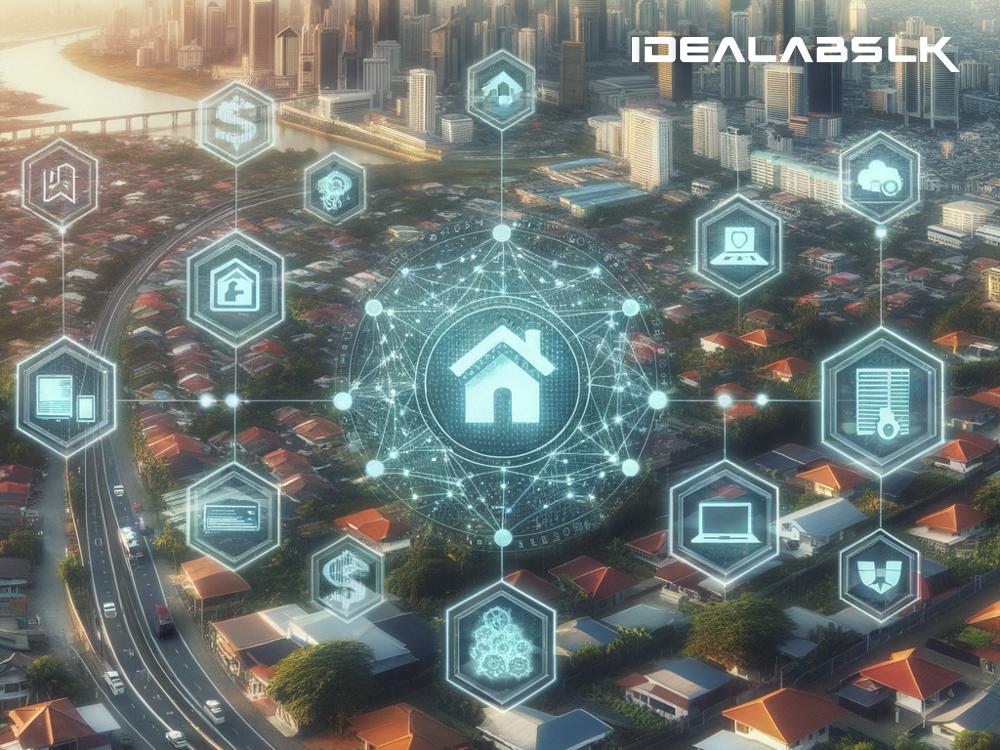Blockchain for Real Estate: Speeding Up and Sharpening Property Valuations
The real estate world is vast and often complex. Whether you're buying your first home, selling a property, or involved in more significant commercial real estate dealings, there's one thing everyone can agree on—the process can be slow and full of paperwork. That's where blockchain technology comes in, offering a brighter, more efficient future, especially when it comes to property valuations.
What is Blockchain?
Before diving into its impact on real estate, let's first understand what blockchain is. In simple terms, imagine it as a digital ledger or a record book that's open for everyone to see, stored not in one single place but across a network of computers. This setup makes it nearly impossible to cheat the system since altering any information would require changing every copy of the ledger across the entire network.
Why is Blockchain Important for Real Estate?
The traditional process of property valuation involves multiple steps and players—from appraisers and real estate agents to banks and lawyers. It can be time-consuming and, sometimes, inaccurate. Blockchain introduces an innovative way to streamline these processes, save time, and heighten accuracy. Here's how:
1. Enhanced Transparency
With blockchain, all property records (including valuations, transactions, and historical data) can be stored in a way that's accessible to everyone but tamper-proof. This kind of transparency reduces the chances of fraud and errors, making the valuation process more honest and straightforward.
2. Faster Transactions
One of the most significant advantages of using blockchain in real estate is the potential to speed up transactions. Traditional property transactions can take weeks or even months, bogged down by paperwork and the need for various approvals. Blockchain can automate many of these steps, allowing for smoother, faster deals. This speed also benefits property valuations, as updated information can be processed and reflected much more quickly.
3. Accurate and Fair Valuations
Since blockchain provides a transparent and detailed history of a property (from its construction date to its last sale price and everything in between), appraisers can make more informed valuation decisions. This data richness allows for more accurate and fair valuations, reflecting a property's true value more closely.
4. Reduced Costs
Automation and streamlined processes mean lower costs. For property valuations, this could mean less reliance on various intermediaries who traditionally add to the expense of buying or selling property. Fewer fees and a faster process could make the real estate market more accessible and appealing to a broader range of people.
5. Global Standardization
Real estate practices can vary widely from one country to another, making international transactions especially complicated. Blockchain has the potential to offer a standard, unifying system that everyone, everywhere, can use. This universality could simplify international property valuations and transactions, making the market truly global.
Challenges and Considerations
While the benefits of blockchain for real estate are evident, there are also challenges to consider. Implementing such a system requires widespread adoption across a historically fragmented industry. In addition, there are concerns about data privacy and the digital divide, where parts of the population might be left behind due to lack of access or understanding of this digital innovation.
The Future is Here
Despite these challenges, the integration of blockchain in the real estate sector is already underway. Various startups and established companies are experimenting with blockchain-based transactions and valuations, proving that while the future might seem ambitious, it's certainly attainable.
Blockchain technology in real estate is not just a theoretical improvement—it offers practical solutions to longstanding issues. It promises a future where property valuations are faster, more accurate, and fairer for everyone involved. As technology continues to evolve, it will undoubtedly play a growing role in how we buy, sell, and value property. The journey towards a blockchain-powered real estate market is just beginning, and it's a path that promises to reshape the industry for the better.

